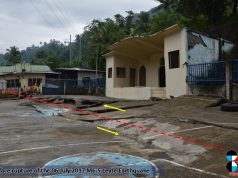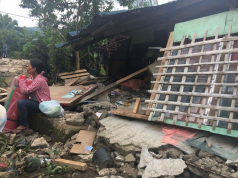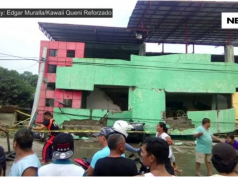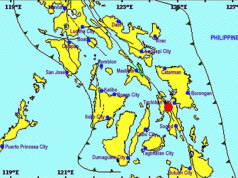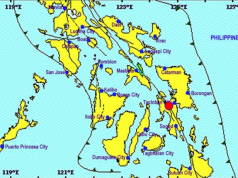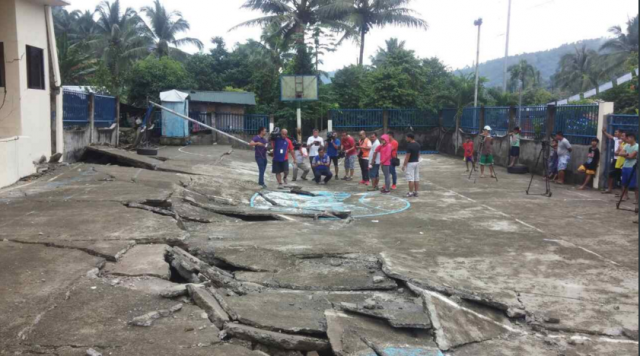
MANILA, Philippines – Rocked by a powerful earthquake last week and random aftershocks, President Rodrigo Duterte should place Eastern Visayas under a state of calamity, two lawmakers said Wednesday.
In making the appeal, representatives Ben Evardone of Eastern Samar and Edgar Sarmiento of Western Samar said they were echoing the sentiments of the local officials in the region’s provinces.
Evardone said the region’s main source of power, the Tongonan Geothermal Power Plant, was damaged by the 6.5 magnitude temblor, leaving the most parts of the region without power.
Eastern Visayas (Region 8) is composed of Biliran, Eastern Samar, Leyte, Northern Samar, Samar and Southern Leyte.
“We are alarmed by the situation in Region 8 because of the power supply,” Evardone said.
At present, residents are relying from power supply sourced from Cebu province, which is not enough, the lawmaker said.
He said the aftershocks also damaged the transformers of the National Grid Corporation of the Philipines (NGCP), which was supposed to distribute power from Cebu.
Power supply was cut in many areas of the region after a strong quake shook the towns of Kananga and Jaro in Leyte on July 7. It was followed by several intense aftershocks that totally shut down remaining power sources.
Citing reports from the National Economic and Development Authority, Evardone said the region is losing P300 to P500 million every day because of lack of electricity.
The restoration of power in Leyte, Samar and Bohol might take longer than projected, the Department of Energy said on Wednesday.
In a press briefing held during the “E-Power Mo” Conference at the Philippine International Convention Center, DOE Undersecretary Felix William Fuentebella cited a report from the Energy Development Corp. stating that during the testing of the Tongonan geothermal power plant, a mechanical problem was discovered and the company decided to postpone its operation from July 16 to 19.
Once operational, the Tongonan power plant will be able to supply 40 megawatts (MW) to quake-affected areas without going through the Ormoc substation, according to Fuentebella.
The NGCP also discovered that transformers 2 and 5, which were initially assessed as intact, were damaged internally and would not be able to handle the 40 MW coming from the Tongonan power plant, said Fuentebella.
The NGCP is currently dismantling its transformers in Cebu to be transported to the Ormoc substation to enable it to transmit an additional 120 MW that would be generated from either Luzon or Cebu and other power plants.
Fuentebella said the NGCP had estimated the process to take until the end of July or August 1 to complete.
The 120 MW that will pass through the Ormoc substation, combined with the 40 MW from the Tongonan power plant, will amount to 160 MW or 55 percent of the 291 MW required by the quake-affected provinces.
”This recent disaster is another good reason for us to hold dialogues, like the ‘E-Power Mo’ Conference, together with partner agencies, stakeholders and industry players for us to build up our energy resiliency,” Fuentebella said.
“We were prepared for a major storm but instead, we were struck by a strong earthquake, which we were not quite prepared for,” he added.
WATCH A RELATED VIDEO REPORT BY NEWS5:




